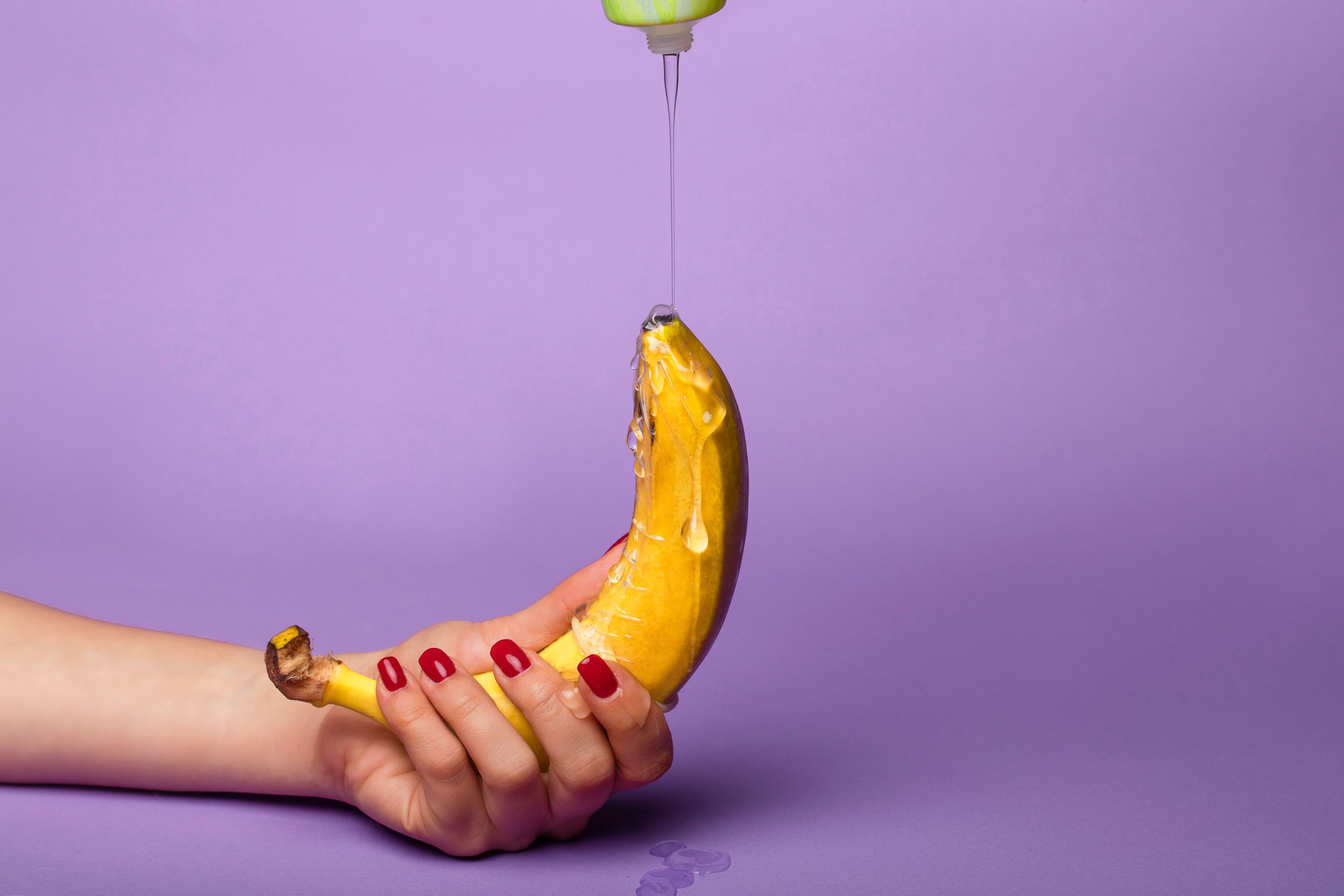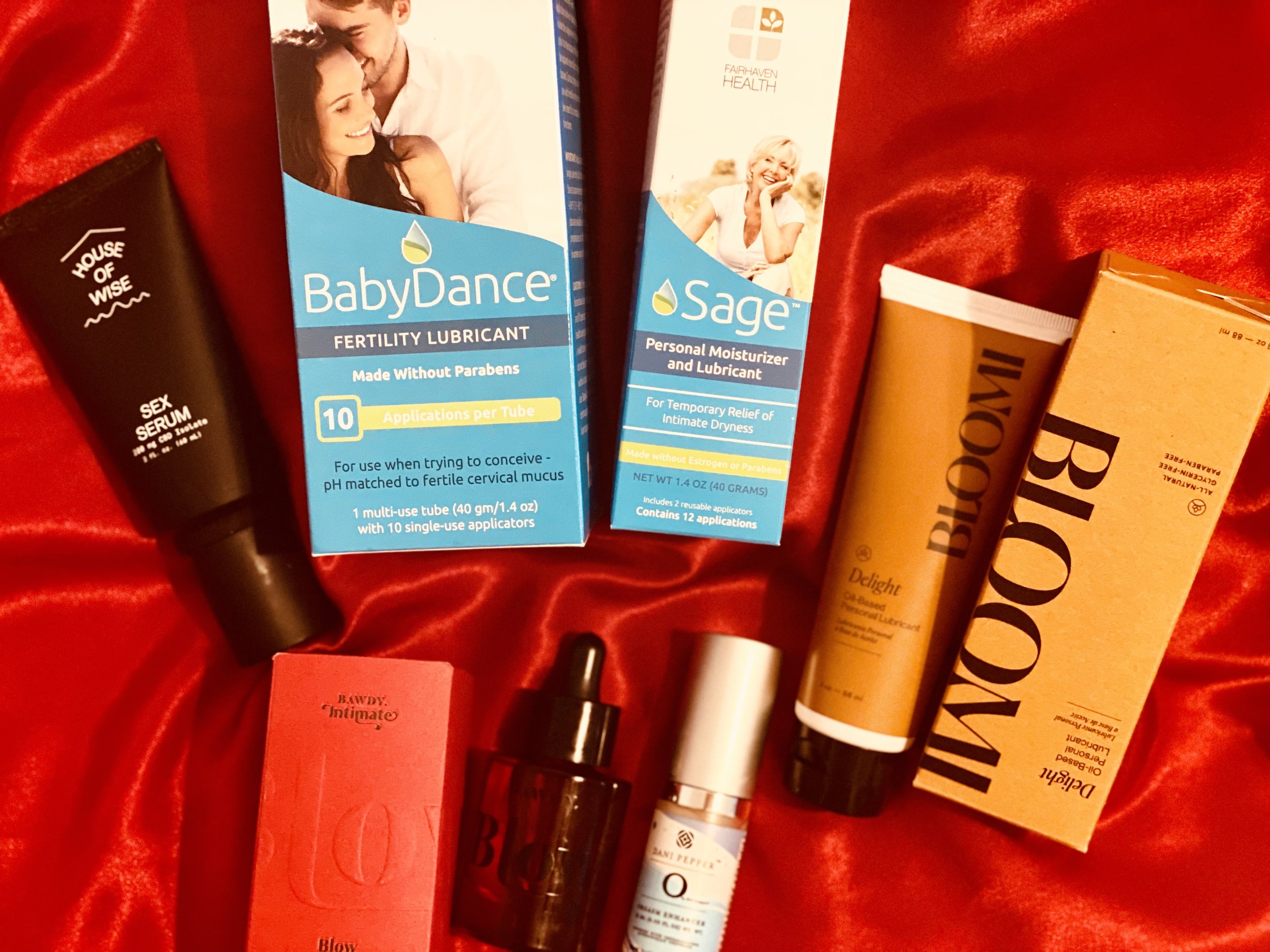Everything Guide to Personal Lubricant Use, What to Avoid, and Which are Best
Personal lubricant use is commonplace for a wide age range of humans, so it is important to know some basics about lubes. Lubricants are frequently used to increase lubrication and decrease friction during sexual activities both solo and partnered.
Who uses lubricants?
Humans have been using lubes for thousands of years, and more people use personal lubricants than one might think. Common among younger and older users alike, these sexual wellness products are being used by humans throughout their lifetime. Some older studies have shown that over 65% of women in the United States reported having used a lube in the previous month, and over 90% of gay and bisexual males reported using lubricants. More recently, major media stories have helped to destigmatize lube usage and to spread the word - lubricants make sexual activities better and safer for everyone.
What are personal lubricants?
They are liquid or gel sexual health and wellness products that can make sexual activities more comfortable and pleasurable. Delicate genital and anal tissues can be prone to painful friction, and that can lead to irritations and even infections. Lubes provide a lovely slippery barrier that protects and adds to the comfort of penetrative vaginal, anal and oral sexual activities, as well as masturbation. A good oil-free lubricant can also make condom use safer and more comfortable. You might think of these products as sex enhancers. Unfortunately, all lubes are not created equal, and many are not safe.
Why should you care what’s in your personal lube?
Genital and anal tissues are permeable and absorbent, so it is imperative that the products you use be free of toxins. You know that what you eat makes a difference to your body, and the same is true about what you put on your skin, especially when products are going inside of you. You also need to be mindful of whether your lubricant can be safely combined with a condom, dental dam or sex toy.
What should you look for in a personal lubricant?
Lubricants come in a wide variety of styles, scents and flavors. It takes trying out different sexual wellness products to learn what fits best for you. Which consistency feels best to you? Are you prone to infections, like yeast and urine tract infections (UTI’s)? Do you need a lube that is safe to combine with a condom, dental dam or toy?
Many lubricants contain toxic chemicals that should not be used on delicate bodily tissues. In 2012 the World Health Organization issued an advisory about lubricants, stressing the importance of using quality, toxin-free products that have a correct pH and osmolality.
Why is pH important? The vagina and its microbiome (good, healthy microorganisms) self-balances to maintain a pH level, and using a lubricant that is too alkaline or acidic can throw things off balance, which can lead to infections. You’re better off using a pH balanced product, which is also less likely to cause irritations. An oil-free, pH balanced lube is also less likely to damage condoms. The WHO recommends using a lubricant with a pH of 4.5.
What is osmolality, and why should you care? “Osmolality” is the concentration of the chemicals in your product once they are dissolved. Most lubricants have too high of a concentration level, which can damage vaginal and anal tissues. Many lubricants with a high osmolality are filled with toxic chemicals. The WHO recommends using a lubricant with an osmolality below 1200 mOsm/kg.
What are the 3 types of lubricants?
Water-based lubes are the most common sexual enhancer. Water-based products combine safely with barrier methods like condoms and with sex toys, and usually won’t leave stains. They are also less likely to contain harmful chemicals commonly found in sexual wellness products. Water-based products do not always have the staying power to keep things slick throughout sexy time, so you may find yourself needing to reapply them.
Oil-based lubricants can be synthetic or natural, like products found around the house. Please do not use beauty products like lotions, soaps and household oils as a lube substitute. Oils coat the skin, and can stay clinging to your parts for longer than desired, which isn’t healthy. Many of these products can cause irritations and infections, especially if they are not pH balanced. Please be aware that oils can erode prophylactics and create holes in your condoms and dental dams.
Many oil-based lubricants on the market use coconut oil as a base, which may be OK for many people. Coconut oil can feel lovely as a lubricant. However, coconut oil has antimicrobial properties that can throw off the balance of the vaginal microbiome. This is where pH comes into play, because the vagina is acidic and coconut oil can make it more alkaline. If you are prone to yeast infections and UTI’s then you should avoid coconut oil in lubes. It is also extremely important to note that, like other oil-based lubes, coconut oil cannot be combined safely with condoms or dental dams. Coconut oil can also stain clothing, sheets and anything else it drips or spills onto during sexy time.
Silicone-based products are popular because they often have a nice consistency and are long-lasting, which is especially helpful for anal play. However, silicone is on my list of ingredients to avoid (see full list below). Silicone also cannot be safely combined with silicone pleasure toys.
What are arousal gels and serums?
Arousal gels and serums are not lubricants, but they are worth mentioning because their purpose is to stimulate blood flow and arousal, which can enhance natural lubrication. I like cbd-infused arousal products combined with a quality, natural, water-based lube. Cbd can not only help with blood flow, it has also been reported to ease genital pain that can otherwise make sexual activities challenging.
What should not be in your lube?
The list of ingredients to avoid in lubricants is long, but don’t let it overwhelm you. You may want to bookmark this page to reference what is in your sexual wellness products, and avoid the ingredients below.
Parabens, commonly labeled “methylparaben” and/or “propylparaben”, are preservatives that can cause irritations, rashes, and may cause fertility issues as well as being an endocrine disruptor.
Phthalates, (pronounced “tha-lates”) are chemicals that can be endocrine disruptors, which means that they can mess with hormones, and shouldn’t be inserted into delicate bodily tissues where they can be too readily absorbed.
Glycerin and other sugars, especially synthetic versions can cause bacterial growth, which can lead to yeast and bladder infections.
Phenoxyethanol is a chemical that can cause irritations and might lower immune system function.
Chlorhexidine gluconate can throw off vaginal pH balance and cause irritations.
Silicone, especially cyclomethicone, cyclopentasiloxane and cyclotetrasiloxane, coats skin, which could cause irritations and tissue damage.
Petroleum coats skin, may cause infections and could be harmful to health.
Artificial scents, which may be labeled “fragrance” or “aromas” do not belong in your lubricant, as they could contain any number of chemicals.
Artificial flavorings are also likely to contain countless chemicals that may disrupt the delicate balance of bodily tissues, and may lead to irritations and infections.
Artificial colors are unnecessary dyes that could contain chemicals one might be allergic to and could cause irritations.
What’s on my nightstand? Antonia’s favorite lubricants and arousal products.
What lubricants do I recommend?
From standby favorites to hemp-infused new products, there are many great lubricants around to try.
Aloe cadabra is an aloe-vera based natural lubricant that I have been recommending for years. I like the consistency, the natural scents and that it is toxin-free. This water-based product is pH balanced, and won’t stain fabrics like bedding, furniture and clothing. Aloe cadabra can be safely combined with condoms and toys.
Sage Personal Moisturizer and Lubricant is a water-based product made by Fairhaven Health. I love that this lube and moisturizer has a gentle gel consistency that feels close to natural lubrication and lasts without getting sticky. Free of harmful chemicals, Sage is pH balanced, isotonic, and tested for osmolality. It has a lovely light rose scent, and can be safely combined with condoms, dental dams and toys.
Trying to conceive a baby? Baby Dance is another Fairhaven Health product specifically made to help couples conceive. You may have noticed that many of the lubricant ingredients I recommend avoiding can be endocrine disruptors, which means that they can mess with your hormones and actually make it more difficult to get pregnant. Baby Dance mimics the consistency of cervical secretions and is guaranteed to be sperm and egg safe. It feels like natural lubrication, and can make baby-making activities more fun.
Bloomi makes a water-based lube that I love called “Smooth”. Free of harmful chemicals, this pH balanced lubricant has a perfect light gel consistency that feels natural and doesn’t get sticky. Smooth can be combined with latex and polyisoprene condoms. It should not be used with polyurethane condoms. Maybe like me you’ll appreciate that Bloomi natural products come in recyclable sugarcane tubes in beautiful sustainable compostable treeless cartons all while being affordable.
While I have reservations about coconut oil-based lubes, they can be an excellent choice for those not prone to infections. They are also a great alternative to toxic silicone products for anal play because they can have more lasting power. Bloomi also makes Delight Oil-Based Personal Lubricant. Delight feels really yummy, it has a lovely scent, and it doesn’t get sticky. Note that this product cannot be combined with barrier methods like condoms and dental dams, and may erode or stain sex toys.
Bawdy Intimate makes Blow, an edible, natural, certified-organic, cbd-infused lube that I adore. The company aims to destigmatize blow jobs and oral sex (hooray) with this edible product. Cannabinoids are better when combined, and Blow contains both cannabidiol (cbd) and cannabigerol (cbg), which can stimulate blood flow, decrease pain and sensitivity and increase pleasurable sensations. It feels sensational, tastes like cbd and smells like weed. That will be more favorable to some users than others. This product does contain oils, so it cannot be combined with barrier methods like condoms and dental dams, and may erode or stain sex toys.
Which arousal products are my favorites?
House of Wise makes an arousal product called Sex Serum that is vegan, plant-based and pH balanced. Free of harmful chemicals and dyes, Sex Serum is clinically tested and latex-safe. This serum contains hemp-derived cbd, which can help stimulate blood flow and naturally increase arousal. It also contains mint, which produces a tingly sensation that begins cool and then warms. For those that enjoy sensation play, this is a great addition to solo and partnered activities. Combine it with one of the lubes above for even more pleasure.
”O” by Dani Pepper has long been one of my favorite cbd-infused orgasm enhancers. It is made with aloe vera and contains vitamin c to be gentle and supportive of delicate genital tissues. It is plant-based, pH balanced, lab tested and can be safely combined with condoms, dental dams and sex toys. I have found that a couple pumps of this creamy gel product can really enhance orgasmic potential. I also love the soft rose scent. “O” can be combined with lubricants as needed.


